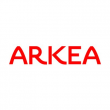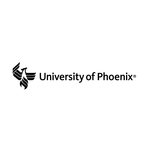Rising stars dominate World Exchange Congress
Emerging markets Brazil, India and Turkey took the spotlight at yesterday’s World Exchange Congress event in London, as senior executives highlighted rising technological investment, growing competition and successful index performance.
“In 2012, foreign investors opened 4,000 new accounts with us at BM&F Bovespa,” said Sergio Gullo, chief EU representative at Brazilian exchange BM&F Bovespa. “The previous year, we saw 7,000 new foreign participants. Some 40% of equities trading and 26% of derivatives trading in Brazil now comes from foreign investors. In the last 12 months, many of these are coming from Europe.”
Brazil has long been favoured by the electronic trading community. Since 2010, every major global bank has launched electronic trading tools in the country, including direct market access and algorithms. Global technology and connectivity companies such as SunGard and Fidessa have been falling over themselves to establish a presence in Brazil, while the BM&F Bovespa exchange has installed co-location technology to reduce latency, formed an alliance with US derivatives giant CME Group, and is currently rolling out Puma, its new high-tech trading platform. Brazil’s exchange is also collaborating with its BRICS partners, especially the Chinese exchanges in Shanghai and Shenzhen, to encourage more Chinese to invest in Brazil and to develop cross-listed products.
The success of the country has also generated interest from new participants, including Americas Trading Group, which is planning to open Brasil ATS, an alternative trading venue in the country later this year, and BATS Global Markets. But according to Gullo, there is still more work to be done.
“If you look at size of Brazilian economy and the number of listed companies, you can see there’s big room for improvement,” he said. “We’ve been working with banks to travel round the world, visiting important markets such as England, Spain, Poland, Korea and the US and drawing on their experience to help us attract companies to list on exchange.”
Meanwhile in India, the launch of new contender MCX-SX in Mumbai in equities and equity derivatives this week drew attention from Hirander Misra, board advisor at India’s Ahmedabad Stock Exchange, who pointed out that recent moves by the Securities Board of India were creating new opportunities. At the end of January, SEBI mandated the debt market to move on-exchange; earlier, it also decreed that small regional exchanges across India must either provide a minimum level of liquidity or lose their licence – a move which should help concentrate liquidity on the main venues.
The other main bourses in India are the National Stock Exchange and the Bombay Stock Exchange, which largely focus on equities and derivatives respectively. SEBI has made other reforms in the last 18 months, including permitting smart order routing, which should help to draw in investors. However, there are still some anomalies in post-trade practices, according to Misra.
“In India, you can’t cross margin between trades on different venues even if they are using the same CCP,” he said. “That’s strange because it means you can’t use collateral efficiently, and ultimately the clearing members are paying for that. It’s down to a siloed exchange model, and that could be improved.”
Turkey also drew praise from delegates. Robert Barnes, chief executive at UBS MTF, pointed out to Banking Technology that the Istanbul Stock Exchange’s national 100 index was one of the top performing exchange indexes in the world last year. Turkey’s attainment of advanced emerging market status on the FTSE index in 2011 also placed Istanbul ahead of Moscow in the race to become an international financial centre, Barnes added.
Turkey has become increasingly welcoming to international investors in recent years. Lured by the domestic market capitalisation of €215 billion reported on the Istanbul Stock Exchange, and by an IPO pipeline that saw €422 billion in new capital enter the market last year, western capital markets companies have been quick to pick up on the opportunities presented by Turkish modernisation and economic growth. Solid macroeconomic performance has helped – Turkey is currently the seventh-largest economy in Europe – while reforms to the country’s Capital Markets Law in July 2012 saw Turkey adopt the same legal definitions of financial instruments and other terms as used by the European Union in its MiFID directive.
Further refinements, such as a rule change in late 2010 that effectively unlocked the door to algorithmic trading in the country, have prompted large banks including Citi to release advanced trading products including algorithmic and direct market access offerings in the country.
Barnes is currently chair of the Turkey Advisory Group, an initiative that aims to build closer business links between the UK and Turkey. The group will send a delegation to Ankara on 18 March including the Lord Mayor of London.













































